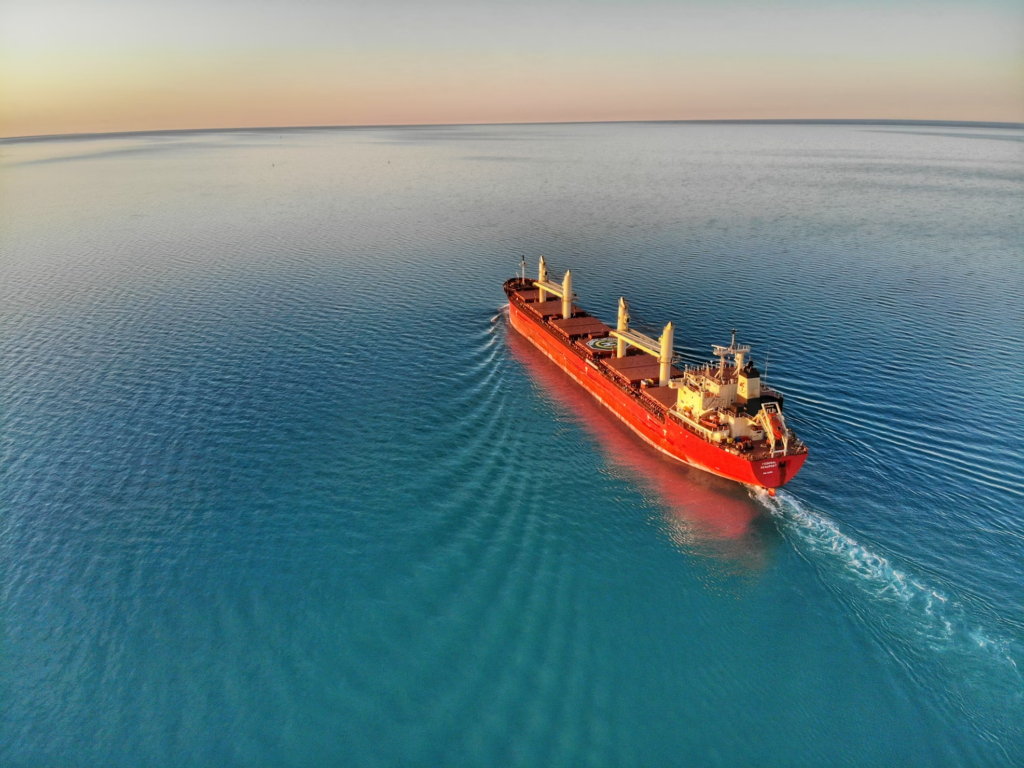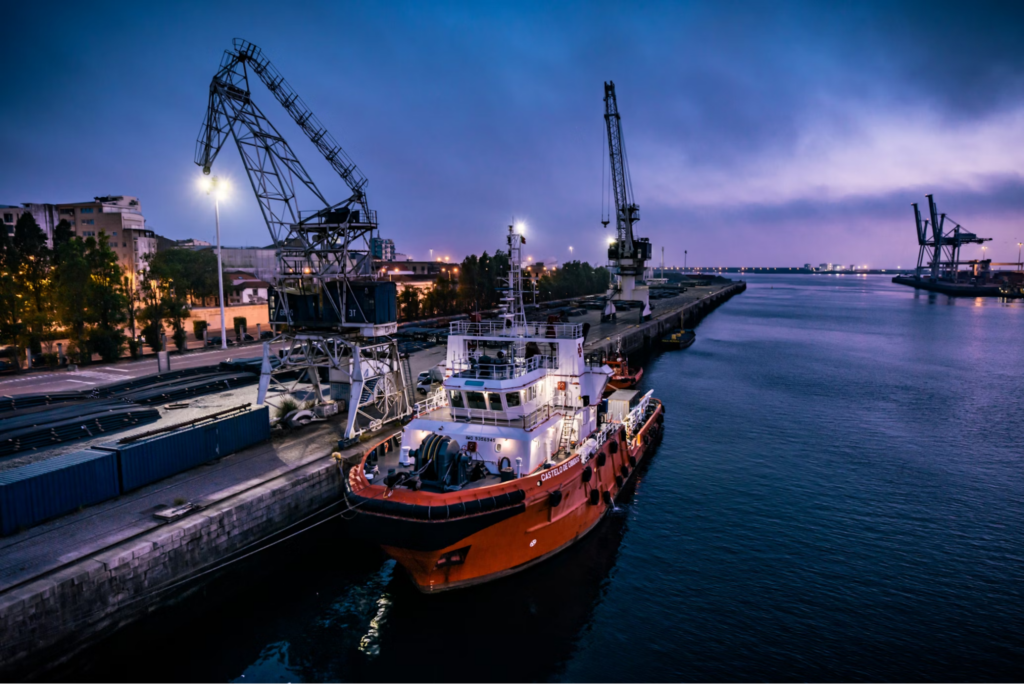As a result of its revolutionary effects on work performance, productivity gains, and innovation, AI has become a necessary tool for many industries, one of them being the maritime industry. Traditional methods and manual labor have long been the backbone of the maritime industry, but with the advent of AI, that is all changing. Ai is having a huge impact on maritime operations, especially in the areas of route optimization, vessel maintenance, and safety. In this article, we’ll go through the impacts – both positive and negative, as well as the possibilities and threats of AI on maritime operations.

Route Optimization and Fuel Efficiency
Shipping route optimization is one of AI’s most important impacts on maritime operations. Inefficiencies and wasteful use of fuel were common when route planning relied on static data and human intuition. Systems powered by AI, on the other hand, can analyze massive amounts of data in real-time, such as weather conditions, sea currents, and shipping patterns from the past, and determine the most effective routes.
These systems can also minimize fuel usage and travel time by using machine learning algorithms to predict and adapt to changing conditions. Not only does this help shipping companies reduce operational costs, but it also helps the environment by reducing emissions of greenhouse gasses. There are economic and environmental benefits to using AI for route optimization, so it’s a win-win situation.
Vessel Maintenance
The efficient running of maritime operations depends on regular vessel maintenance. Traditional maintenance practices are often reactive, dealing with issues only after they arise. This approach can lead to unexpected downtime and expensive repairs. AI is changing this by using predictive analysis (AI algorithms to analyze data collected by the ship’s many sensors and systems). As experts from Windward state, there is an increasing need for solutions that are both predictive and agile, because maritime industry companies and stakeholders must be able to predict and adapt to trends to stay on top of the game. These AI algorithms have the ability to identify patterns and predict any potential failures before they happen.
For example, AI can monitor the condition of vital parts like hulls and engines, and it can notify the crew if anything out of the ordinary (that can indicate that these parts are starting to wear out) happens. By proactively identifying and fixing problems, this predictive maintenance approach extends the vessel’s lifespan and reduces downtime.
Navigation and Safety
For maritime operations, safety has a big importance, and AI is playing a crucial role in improving navigational safety. The advent of fully autonomous ships is rapidly approaching, equipped with navigation systems driven by artificial intelligence. These systems use data from radar, GPS, and other sensors to navigate safely, avoiding any collisions.
One further way AI can help human operators is by offering sophisticated decision-making support. Artificial intelligence systems can analyze data in real time and provide advice on how to avoid dangerous weather or how to optimize cargo loading for stability. Human mistake is a major contributor to maritime accidents; however, systems driven by AI can also track crew attention and energy levels, lowering this risk.
Regulatory Compliance and Environmental Monitoring
Safety, security, and environmental protection are the primary goals of the maritime industry’s rigorous regulations. It can take a lot of effort and time to comply with these regulations. AI has the potential to simplify this process by automating compliance checks and documentation. AI systems can monitor emissions and waste disposal to guarantee compliance with environmental regulations, for example. Important for preventing the spread of invasive species, these systems can also monitor and analyze data related to ballast water management. AI guarantees adherence to international standards and reduces the administrative burden on maritime operators by automating regulatory compliance.

Streamlined Port Operations
Ports are an important part of the global supply chain, and their efficiency directly impacts maritime operations. Port operations, including logistics management and cargo handling, can use AI to make them more efficient. AI systems can optimize the distribution of resources like trucks and cranes according to current demand and availability.
Also, AI has the potential to improve the scheduling of ship arrivals and departures, which in turn can decrease congestion and waiting times. Predictive analysis can also forecast cargo volumes, and improve strategy and resource allocation this way. AI helps make port operations more efficient, which means lower operational costs, shorter turnaround times, and happier customers.
Crew Training
Maritime operations cannot have high standards of safety and efficiency without investing in the training and professional development of crew members. AI simulators can provide a realistic training experience for crew members. The crew can train and perfect their skills in a controlled environment using these simulators, which can replicate various scenarios, including emergency situations.
Additionally, AI has the ability to tailor training programs to meet the specific needs of each crew member. AI systems can analyze performance data and see which areas need more training and then provide specific learning modules to address those areas. This tailored approach to training will ensure that crew members are well-prepared to manage all the complexities of modern maritime operations.
Challenges to Think About
Even though AI has a lot of benefits for maritime operations, there are also certain problems to have in mind. For example, cybersecurity. The possibility of cyberattacks is rising in tandem with the digitization and reliance on AI in maritime operations. Protecting sensitive data and infrastructure requires strong cybersecurity measures.
One more thing to think about is how to integrate AI into current systems and processes. Maritime operators need to invest in and modernize their infrastructure if they want to get the most out of AI technologies. Another important step in guaranteeing the safe and ethical use of AI in maritime operations is the establishment of industry-wide standards and regulations.
A lot of industries are using AI to improve and simplify their processes, and the maritime industry is no exception. Anyone planning to work or study in this area should inform themselves and understand how the implementation of AI in maritime operations changes them.